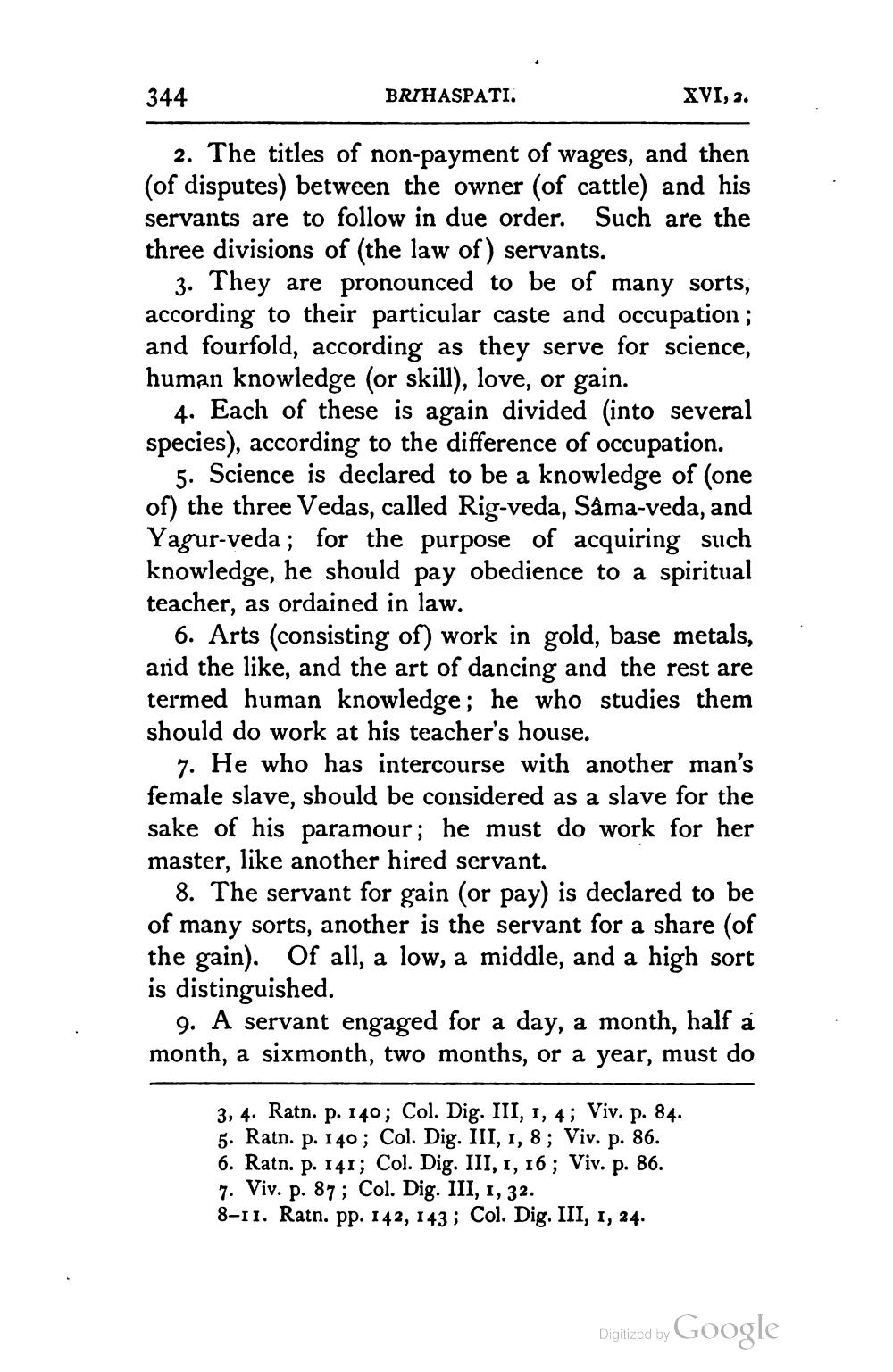________________
344
BRIHASPATI.
XVI, 2.
2. The titles of non-payment of wages, and then (of disputes) between the owner (of cattle) and his servants are to follow in due order. Such are the three divisions of (the law of) servants.
3. They are pronounced to be of many sorts, according to their particular caste and occupation; and fourfold, according as they serve for science, human knowledge (or skill), love, or gain.
4. Each of these is again divided into several species), according to the difference of occupation.
5. Science is declared to be a knowledge of (one of) the three Vedas, called Rig-veda, Sâma-veda, and Yagur-veda; for the purpose of acquiring such knowledge, he should pay obedience to a spiritual teacher, as ordained in law.
6. Arts (consisting of) work in gold, base metals, and the like, and the art of dancing and the rest are termed human knowledge; he who studies them should do work at his teacher's house.
7. He who has intercourse with another man's female slave, should be considered as a slave for the sake of his paramour; he must do work for her master, like another hired servant.
8. The servant for gain (or pay) is declared to be of many sorts, another is the servant for a share (of the gain). Of all, a low, a middle, and a high sort is distinguished.
9. A servant engaged for a day, a month, half a month, a sixmonth, two months, or a year, must do
3, 4. Ratn. p. 140; Col. Dig. III, 1, 4; Viv. p. 84. 5. Ratn. p. 140; Col. Dig. III, 1, 8; Viv. p. 86. 6. Ratn. p. 141; Col. Dig. III, 1, 16; Viv. p. 86. 7. Viv. p. 87; Col. Dig. III, 1, 32. 8-11. Ratn. pp. 142, 143 ; Col. Dig. III, 1, 24.
Digitized by Google




